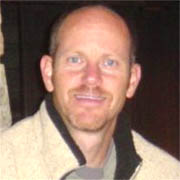Tech Professors Lazarus, Weaver Earn $453,000 NOAA Grant
By Space Coast Daily // March 2, 2014
work will support National Weather Service
BREVARD COUNTY, FLORIDA — A National Oceanic and Atmospheric Administration (NOAA) grant of $453,144 over three years has been awarded to two Florida Institute of Technology faculty members to improve high-resolution hydrodynamic model simulations for estuaries, lagoons and similar bodies of water, and around barrier islands.

The grant was approved by NOAA’s Collaborative Science, Technology and Applied Research (CSTAR) program.
The recipients, Professor of Meteorology Steven Lazarus and Assistant Professor of Ocean Engineering Robert Weaver are faculty members in the Department of Marine and Environmental Systems.


They will focus on high-impact extratropical and tropical storm events as well as offshore hurricanes. These events can have potentially large impacts on coastal ecosystems with significant local economic repercussions, primarily through flooding.
“Our work will center on the Indian River Lagoon (IRL),” said Lazarus. “We hope to use high-resolution forecasts to drive local surge and tide simulations and extend the forecasts into estuaries, coastal waterways and inlets.”
The team’s work will be designed to fill a niche—to provide a feasible way to resolve complex coastal interfaces and to support the work of the local National Weather Service.












